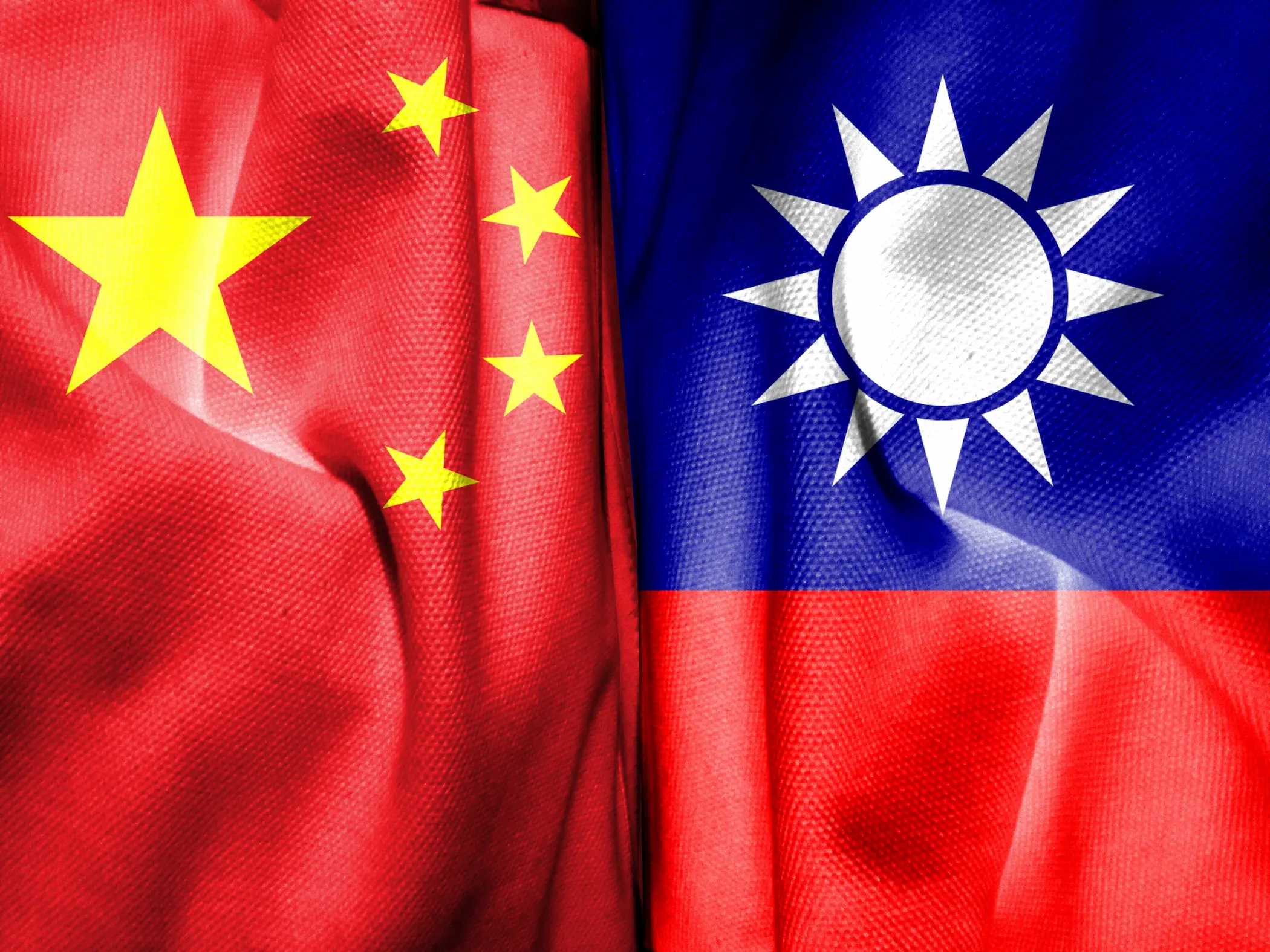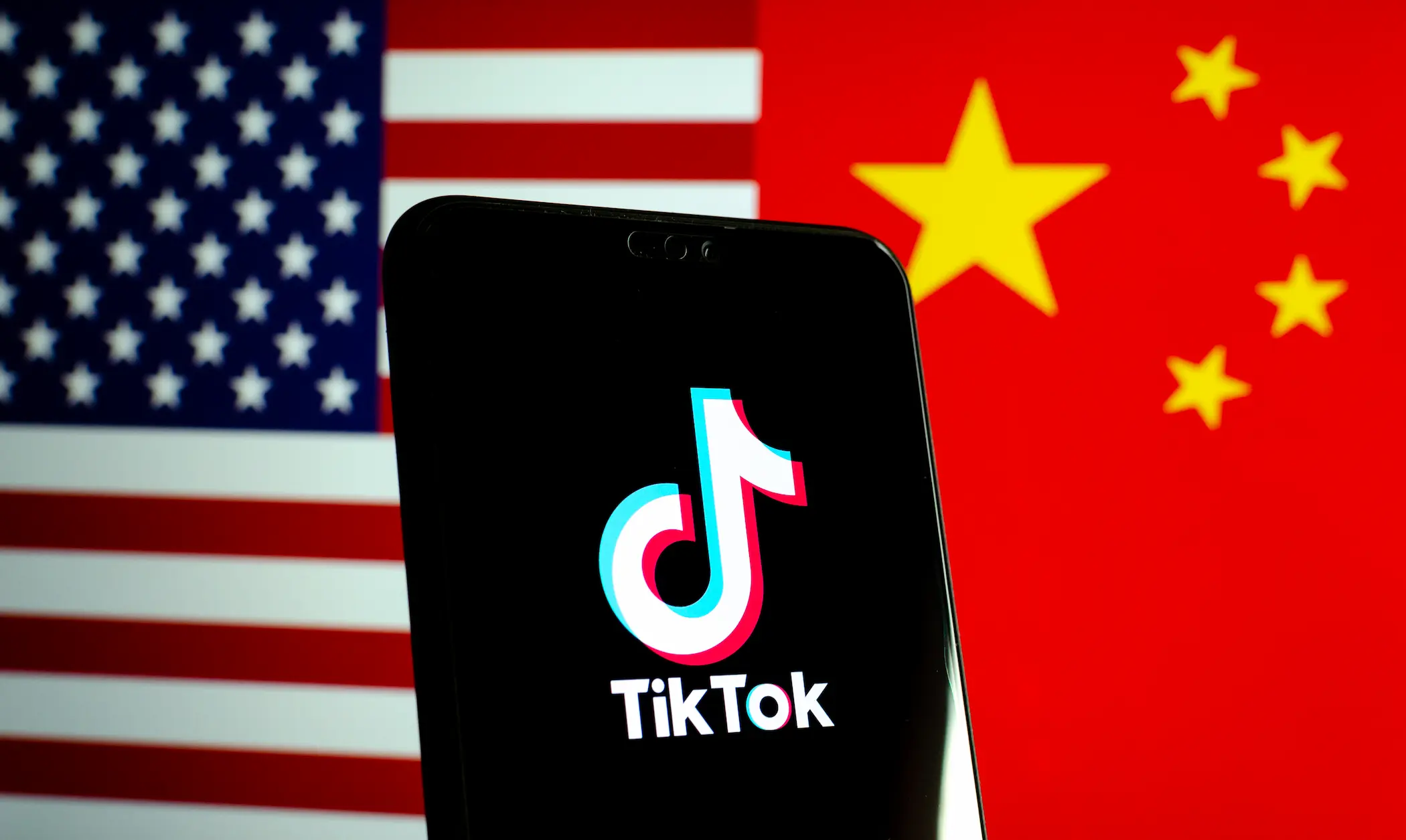22 May 2025
What If: China Invades Taiwan?
China and Taiwan have had a complex relationship. Taiwan was once a part of China, following the Chinese Civil War in 1949, the government of the Republic of China retreated to Taiwan, while the People's Republic of China established itself on the mainland. For decades, Taiwan was recognized by many countries as the legitimate government of China, even holding China's seat at the United Nations until 1971, when it was replaced by the People's Republic of China. While China pledges to reunify Taiwan, even by force, the latter depends on the United States to deter any potential Chinese invasion.
Given the current geopolitical changes in the world, there is a possibility that China could invade Taiwan, exploiting the West’s emphasis on the Russia-Ukraine War.
19 May 2025
TikTok: China’s New Weapon
The ongoing trade war between China and the United States (U.S.) has been unfolding for several years and has gained increasing public attention, largely throughout the influence of social media platforms. As awareness of the conflict spreads, social media not only informs the public but also shapes consumer behaviour, often prompting individuals to shift to alternative markets. In some cases, governments recognize this influence and strategically leverage social media influencers to guide public opinion and economic choices. This is already going on in our scenario between China and U.S.
15 Apr 2025
Ripple Effect: Trump Tariffs and the World’s Economic Quake
In April 2025, the Trump administration stunned global markets by announcing a sweeping tariff expansion under the International Emergency Economic Powers Act (IEEPA), introducing a flat 10% universal tariff on all imports. This move, framed as a national economic emergency response, immediately triggered global trade uncertainty and diplomatic friction. The policy marked a significant escalation of Trump’s protectionist agenda, signalling a break with multilateralism and targeting long-standing trade imbalances with strategic rivals and allies alike. We found that the United States (U.S.) trade structure is deeply imbalanced, with persistent deficits concentrated in sectors essential to industrial production, such as machinery, electronics, and vehicles. These deficits have exposed the U.S. to retaliatory measures from key trade partners—particularly China, Canada, and the EU—who have calibrated their responses to hit politically and economically sensitive export categories. Tariffs have initiated a multi-channel inflationary shock: direct consumer price increases, rising intermediate input costs, and cascading pressures on logistics and wages. The compounded effect has resulted in a net consumer price index (CPI) increase of approximately 1.2%, with higher spikes in key durable goods. Global supply chains are beginning to reconfigure.
The automotive sector, in particular, has seen disruption in bilateral flows with traditional partners, creating openings for new logistical nodes. The UAE stands out as a beneficiary, attracting redirected FDI and becoming a strategic re-export and final assembly hub. Collectively, these findings underscore a paradox: while the policy aims to reduce dependency and correct trade imbalances, it simultaneously accelerates external retaliation, domestic cost pressures, and global fragmentation in trade infrastructure.
10 Apr 2025
Navigating the Thaw: Scenarios for the US-Iran Negotiations
The geopolitical landscape in the Middle East is set for a potentially major shift with US President Donald Trump’s announcement of the resumption of negotiations between the United States and the Islamic Republic of Iran, scheduled to begin on April 12, 2025. Following a period marked by escalating bilateral tensions and the effective dissolution of the Joint Comprehensive Plan of Action (JCPOA), this resumption of dialogue has generated considerable anticipation both within Iran and across the wider region. The initial, albeit potentially transient, positive reactions observed in Tehran’s financial markets, as evidenced by movements in the stock market and gold prices, underscore the profound economic implications these discussions could hold for the Iranian populace. Furthermore, the potential for these negotiations to influence broader regional stability is a matter of significant concern and interest even for the nations within the Arabian Gulf. While the precise modalities of these diplomatic engagements – specifically whether they will entail direct bilateral talks, as suggested by the U.S. administration, or proceed indirectly through intermediary channels – remain subject to clarification, the very initiation of dialogue signifies a notable departure from the recent trajectory of U.S.-Iran relations. This analysis will therefore explore a range of plausible scenarios that may unfold as delegations from the United States and Iran convene on April 12, and consider the salient internal political dynamics within both nations, the prevailing external pressures exerted by regional and international actors, and the specific contextual factors that have contributed to this renewed, albeit cautious, engagement.
25 Feb 2025
How Does Populism Shape National and Global Politics?
Populism has recently risen in different regions, including Europe and the United States, constituting a challenge to local and global politics. While this phenomenon existed in Europe before the Second World War (WII), the rise of the Soviet Union as a principal threat to Europe after WII prompted them to neglect populism’s negatives and emphasise confronting the Soviet challenge. After the collapse of the Soviet Union in 1991, Europe began an institutionalised process of identifying new internal and external threats, attempting to keep its capabilities mobilised for confronting challenges that might suddenly arise. This process led to identifying several internal threats, such as migration, lack of skilled employment, and populism as serious threats. Moreover, European integration began a new phase with the conclusion of the Maastricht agreement in 1992, creating the EU in its current form, which prompted Europeans to identify populism as a threat that might impede European integration.
11 Feb 2025
What Is Beyond the USAID Controversy?
Recent decisions by U.S. President Donald Trump cutting aid to foreign countries and dismantling the U.S. Agency for International Development (USAID) have sparked global backlash. While the impact of cutting aid is substantial, the broader significance of this move cannot be overlooked. It reflects a deeper shift in the Trump administration’s foreign policy strategy. But what are the implications for the U.S. and its adversaries?
14 Nov 2024
Why Has China Been Politically Neutral in Libya?
China is known for using its economic power to infiltrate developing countries, especially those experiencing economic shocks, through providing unconditional loans and increasing its investments in infrastructure. Moreover, China avoids the risk of investing in fragile countries or countries torn out by civil wars, as it might not be a safe environment for long-term investments. In Libya, China has maintained the same policy and avoided playing a crucial role in affecting the outcomes of the Libyan conflict. It, however, preferred to maintain a strong connection with the different local parties engaged in this conflict to preserve its interests and ensure having an economic role in the future of the country. This analysis is going to deeply explore the Chinese role in Libya along with future prospects.
10 Oct 2024
BRICS BRIDGE: Will Russia Reshape the Global Financial Order?
The world is currently experiencing rapid and significant geopolitical shifts, with rising global powers like the BRICS Group leading the charge to recalibrate the balance of influence within the Global Financial System. The recent expansion of the BRICS Group, now including 10 nations following the accession of Egypt, Saudi Arabia, the United Arab Emirates (UAE), Iran, and Ethiopia, underscores their growing influence. This bloc is unwavering in its determination to challenge the dominance of the U.S. dollar and to overhaul a global financial infrastructure that it sees as deeply flawed. The BRICS nations argue that the current system, with its structural flaws, serves as a tool for exerting political and economic pressure and contributes to the fragmentation of economies and regions by weaponizing trade and financial constraints.
The BRICS+ nations acknowledge that Dollar Dominance is underpinned by entrenched factors, most notably, the U.S. military power and global confidence in the U.S. legal and regulatory frameworks. Nevertheless, these nations are actively exploring alternatives to reduce their reliance on the dollar, aiming to bolster their financial sovereignty.
In pursuit of this goal, BRICS has ramped up efforts to reduce dependence on the dollar by employing innovative mechanisms. Chief among these is the proposal to issue a new, collective currency and establish a multilateral digital settlement and payment platform, dubbed as the “BRICS Bridge.” This platform is poised to foster greater trade integration among member states, particularly as some nations within the bloc, like Russia, face sanctions and exclusion from global systems such as the SWIFT System -The Society for Worldwide Interbank Financial Telecommunication-.
All eyes are now on the upcoming BRICS Summit, set to take place in October in Kazan. The summit is expected to showcase tangible steps toward implementing these initiatives, which could potentially redefine the structure of international trade and finance. The critical question remains: Will Russia and its BRICS allies break the dollar's stranglehold over the global financial order?
10 Sep 2024
The Silent Rise: How China is Changing the Middle East
China has mediated a Palestinian reconciliation dialogue in Beijing, and has succeeded in bridging the rift between Saudi Arabia and Iran. These steps indicate a change in China's approach to the Middle East, as it has become an active player in the region by expanding its policies to include political and strategic considerations, in addition to its energy interests. Its "non-interventionist" policy has attracted many countries in the region, which see their growing relations with Beijing as a means of diversification. However, China's increasing involvement may pose a threat to US interests in the region. As Washington has increasingly focused on the Indo-Pacific region, China has emerged as an active player in the Middle East, reshaping regional security dynamics, signing strategic partnerships and memoranda of understanding for its economic activities with most Middle Eastern countries, and strengthening its ties with various regional organizations over the past two decades. Recent Chinese diplomatic initiatives demonstrate Beijing’s deep investment in further developing relations with Middle Eastern countries, with Beijing hosting the Arab-Chinese Summit and the Gulf-China Summit, demonstrating its commitment to strengthening strategic partnerships among the region’s countries and promoting economic development beyond its traditional energy interests. China’s growing engagement in the Middle East is seen as a significant factor shaping the region’s geopolitical landscape and has significant implications for global politics. This raises the question: how China’s methods diverge from those of the United States (U.S.) in the region?
23 May 2024
China’s Economic Slowdown: Strategic Responses and Global Implications
China, despite being the second-largest economy globally, encounters challenges such as a distressed real estate sector, reduced domestic consumption, and high debt levels. In response to these obstacles, the government is enacting policies aimed at encouraging domestic spending, mitigating the real estate downturn, and cultivating innovation to ensure sustainable development. The way these measures are implemented will not only impact the economic trajectory of China, but also that of the entire world.
22 May 2024
ASEAN’s Lessons: A Blueprint for Peace in the Middle East
This article was originally published on Ahram Online on May 21, 2024.
Southeast Asia's history, marred by prolonged conflicts since the 1950s, offers pertinent lessons for strife-torn regions seeking stability. The spectre of the Cold War transformed countries like Vietnam into battlegrounds for over two decades, pitting communist and capitalist ideologies in a gruelling contest. Laos, too, bore the scars of proxy warfare, enduring a protracted struggle between the communist Pathet Lao forces, backed by a sizable contingent of North Vietnamese troops of Laotian descent, and the royal government, in a conflict that spanned more than two decades.
22 Apr 2024
The War on TikTok: Security Concerns and Anti-Semitism
Social media has played a pivotal role in reshaping the narratives of the Palestinian-Israeli conflict since the outbreak of Oct. 7. The dissemination of news and information now extends far beyond traditional media outlets. Instead, social media platforms have emerged as potent influencers, surpassing the resonance of weapons and delineating a global divide between Israel and Palestine. These platforms have become arenas of contention, with users segregating into supporters and opponents, rendering them susceptible to content-related pressures amid the war. The war on Gaza has once again thrust TikTok into a heated discourse regarding the application's dangers and impact as a global forum for ordinary individuals to voice their opinions while also serving as a battleground for political factions to vie for narrative control. This debate assumes added significance as the audience of traditional news outlets continues to dwindle.
Recently, numerous TikTok videos concerning the war on Gaza garnered widespread attention, accompanied by pro-Palestinian hashtags, prompting Israeli President Isaac Herzog to engage in discussions with TikTok executives in February 2024. Expressing apprehension over the surge in antisemitic content on the platform since the onset of the Israeli war on Gaza, they assured President Herzog of their commitment to address the issue in the future. In a related context, social media companies based in the United States have already demonstrated a readiness to censor pro-Palestinian content. Human Rights Watch, in its December 2023 report, documented over 1,050 instances of content removal and suppression on Instagram and Facebook by Palestinians and their supporters between October and November 2023.
In this context, U.S. legislators, conservative activists, and technology investors have voiced calls to ban TikTok in the U.S., citing escalating concerns. These calls gained significant traction on March 13, 2024, when the U.S. House of Representatives overwhelmingly voted in favour of a bill. The bill places ByteDance, the parent company of TikTok, with two options, both fraught with implications: either sell the application to a U.S.-based company or confront a ban on distribution through significant platforms and application stores. President Joseph Biden voiced his backing for the bill and signalled his readiness to sign it into law pending Senate approval. However, the U.S. initiative this time brings forth broader concerns beyond national security, encompassing the application's ramifications on Israel's reputation. The country's standing has been damaged due to the swift dissemination of content depicting Israel's crimes against civilians in the Gaza Strip.
This analysis aims to elucidate the reasons behind the shift in the U.S. perspective on TikTok, moving from security concerns to the perception of promoting antisemitism. What repercussions would the embargo have on both the United States and Israel?











